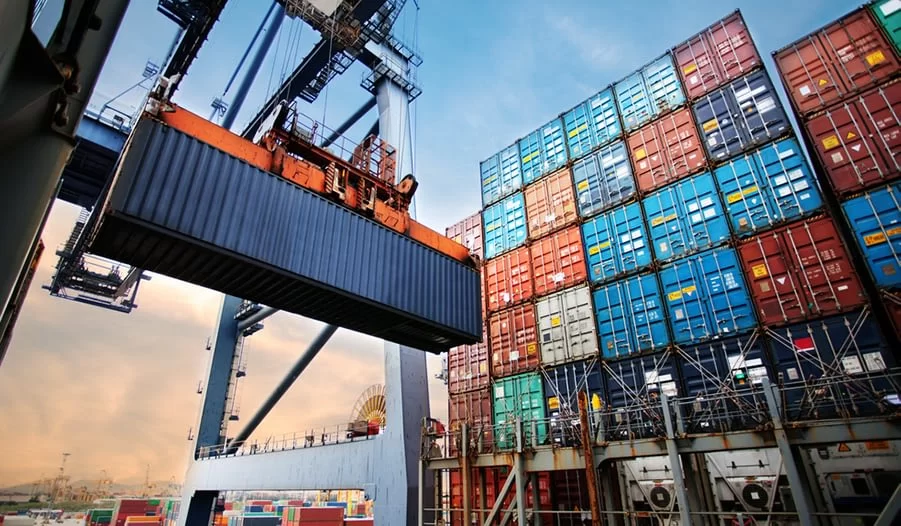A Guide to Transportation in the Gulf Region
The transport and logistics sector are one of the key sectors that stand as a backbone of most economies and nations. The Gulf Co-operation Council (GCC) has made a significant investment in the transport and logistics region.
Because of the region’s significant gas and oil reserves, the Gulf Cooperation Council (GCC) has undergone tremendous expansion in recent decades. Governments in these nations have also played an important role in diversifying their economies by increasing investment in industries other than oil and gas. This has created a favorable climate for numerous firms to flourish.
Regionally, the Transport & Logistics industry is facilitating continuing national transformation initiatives by improving national infrastructure, intra-regional interconnection, service and safety levels, and attracting foreign direct investments.
The logistics business is one of the areas that governments have concentrated on increasing in their efforts to diversify their economies, particularly in Saudi Arabia and following its ambitious Vision 2030. This has offered the industry enormous prospects.
Kingdom International Movers, one of the leading freight forwarders in Saudi Arabia, will explain the transportation scenario in the Gulf region in brief in this article.
Opportunities in the Transport Sector
The region’s governments provide substantial assistance to the sector. This is accomplished through infrastructure investments (road, rail, maritime, airports, and logistics zones) and the creation of a healthy logistics ecosystem by introducing new rules and regulations for involved stakeholders, leaving no room for gray areas in contractual obligations and increasing the level of service quality.
With the region’s economy rising and its population increasing, there is a greater need to invest in extending transportation networks. As a result, urban transportation systems such as metros and inter-urban networks such as high-speed railroads have been implemented. Various public-private collaborations have made this feasible.
Because of the nation’s strategic location, they have access to a diverse spectrum of worldwide clients. According to statistics, more than half of the world’s population can go to one of the nations in less than five hours by freight.
As a result, Saudi Arabia and the Gulf nations’ strategic position connects the logistics and transport businesses to more than 3.5 billion prospective clients worldwide. This demonstrates the industry’s potential. Better land transportation in Saudi Arabia means better economic opportunities for everyone in the GCC region.
Challenges Faced By The Transportation Sector In The Region
One major difficulty that the sector is experiencing is the rising number of sites where clients need to access services, particularly when it comes to last-mile delivery, given the broad terrain and increased customer expectations. Land transport companies in Saudi Arabia face the issue of wide and wild terrain.
There is a risk of duplication or overlapping expenditures as countries strive to better meet transportation demands in their respective territories. For example, various countries may put aside money to fix a specific infrastructure issue in one of the places that they all utilize. This might lead to duplication of efforts, which would be detrimental to the sector in the long term.
Despite the nation’s efforts to have the greatest infrastructure, there is a hurdle in the rising number of trucks and other machinery utilized in business, which is overwhelming the current infrastructure. For example, in some sections of some nations, there are significant delays in the repair and maintenance of critical roadways, hurting industrial participants that utilize the route. There is also a restricted network of railroads, which limits the movement of large products from one location to the next. Most freight forwarding companies in Riyadh wish to have a better infrastructure network of roads and bridges so that faster transport can be done in the Gulf region.
A significant difficulty is a lack of industry expertise. The region’s logistics business is not developing enough talent to meet rising demand. As a result, the industry’s performance is constrained owing to a lack of knowledge.
Transportation Prospects in the Gulf Region
If we want to advance, we need greater competition and adaptation of new logistical technology in the region, which requires the private sector to take it forward. Land transport in the Middle East can be developed by adapting the few suggestions given below.
• Collaboration between competitors
Cooperation has long been employed in industries such as automotive and manufacturing. Even if a manufacturer builds something for a competitor (i.e., monitor screens), it benefits everyone involved, whether the competitor gets a lower cost of goods, the manufacturer gets a lower fixed cost by utilizing resources more efficiently, or the economy as a whole, because efficiency and utilization always pay off to society. We saw some fantastic co-opetition instances during the COVID-19 epidemic, but it came to a halt after supply and demand reached more equilibrium levels.
Consider having one courier deliver 60 deliveries for two residential blocks instead of 12 distinct couriers. Consider how many trucks are completely loaded during the month as they transit between DCs and ports. Consider the advantages for all stakeholders, which might include reduced end-user costs, lower CO2 emissions, and higher profits for logistics companies. Everyone benefits! Of course, concerns such as branding, training, and system integration must be addressed, but the risk is worthwhile.
• Introducing New Technologies
When it comes to actual technology injection, the logistics and supply chain business has a long way to go, especially when compared to other areas such as banking and healthcare. There are certain projects, but they are accused of being too scarce or insufficiently scalable; we are, of course, referring to disruptive technologies such as AI, AR, VR, drones, blockchain, IoT, robots, and big data, not simply a basic platform and ERPs. Specifically, block-chain since, by definition, it is both a disruptive technology and a competitive instrument.
At Kingdom International Movers, we are providers of the best cargo service in Riyadh and the entire Gulf region, and we always adapt to the latest technologies. Click here to know more!


